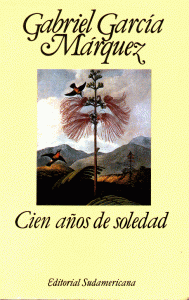University was really, really hard for me, at first. I’d been lucky, in high school: I’d had one teacher who didn’t mind when I wrote my novel in Latin class; another who allowed one of my Canadian Lit classmates to read my oh-so-unpublished novel while the rest of us were choosing between The Wars and The Handmaid’s Tale; and another who got me all fired up about Platonic caves and Forms, and Pindaric odes (and who, very soon thereafter, and for good, became a friend). But I believed what I’d heard: that university would make high school look like storytime on the kindergarten carpet.
My first year at McGill was a disaster.
Yes, I broke up with my boyfriend. But, though this was a psychic disaster that resonated for years thereafter, it was the academic part of the year that truly depressed me. My classes were in fancier rooms, and there were more students, and the hustle and bustle was exponentially larger than it had been at North Toronto Collegiate Institute—but what happened in these classes was mostly just blah. Plus, I wasn’t writing. I was certain I’d never write again. Nothing was right—except my fabulous roommate (a figure-skater-turned-microbiology-student who deserves some sort of podium showing for all those late nights of listening to me), my fabulous rabbit, Esther Bun, and the fact that I could go to the dépanneur next door any time I wanted and purchase Double Stuff Fudgee-Os.
Second year was somewhat better. Third and fourth years were spectacular—because of Nelly.
Nelly was from La Rioja in Argentina—a place she told us she’d left as soon as she could for the cultured glory of Buenos Aires. Nelly wore perfect wool suits—red ones with black tights, or black ones with red tights. She had short dark hair and wore enormous round earrings. She had slightly buck teeth that showed whenever she smiled her insanely expansive smile—which was often. She was old enough to have carried Mao’s Little Red Book around, in the days before the world realized what Mao was doing to his country. She was old enough to remember when Stalin’s Russia was considered The Place to Be—and to remember when that all changed, with a shock that she said she felt as actual pain. (When she told me about this I had just read de Beauvoir’s The Mandarins in my European Lit course, and I felt overwhelmed by this convergence of the lived and the read-about.)
In class she spoke only in Spanish. She spoke of repression and pain; of the particular torment suffered by female prisoners of Latin American dirty wars. She spoke with passion and heat, compassion and heartbreak. And she made us read a colossally long list of essays and novels—all in Spanish, of course. Spanish: a language I’d taken in grade 13 as a throwaway credit; a language I hadn’t been able to study in first year, because all the classes were already full; a language that made me insane, by third year, with longing and confusion.
In fourth year, she made us read a book that some of my non-Spanish-taking friends knew as A Hundred Years of Solitude. I rejoiced that I encountered it as Cién años de soledad.
I’d read and written fantasy for as long as I could remember, and yet I’d never encountered anything like this. It was a double-whammy: I was reading a novel of utterly confounding imagery and history, and I was reading it in Spanish. I didn’t understand every word, and I didn’t use a dictionary—because I didn’t really need one. Context was everything. I understood, even though I often didn’t. I haven’t experienced anything like this since. It was a blur of imagery, and the language through which the imagery was rendered. It was the poetry of a language I’d come to love, and the magic of a culture I’d never known—and it was distilled by Nelly, who gestured and spoke, and gestured and urged us to speak.
Magic realism, indeed.
I wrote to her, while I was living in Mexico—long letters in Spanish, which she never failed to respond to. How did we lose touch? I can’t remember. I remember only that, years after our last exchange, I tried to find her on the McGill faculty website, and discovered that she’d retired. She’s on Amazon, as author of El Silencio Que Habla: Aproximación A La Obra de Luisa Valenzuela. Valenzuela, an author I read in her class. “Her writing is characterized by an experimental, avant-garde style which questions hierarchical social structures from a feminist perspective. She is best known for her work written in response to the dictatorship of the 1970s in Argentina.”
Gabriel García Márquez died today, and I’m remembering Nelly, and how I felt in Nelly’s class. I’ve never felt that way again. Márquez’s words; Nelly’s voice.
“A mí me bastaría con estar seguro de que tú y yo existemos en este momento.”


Recent Comments